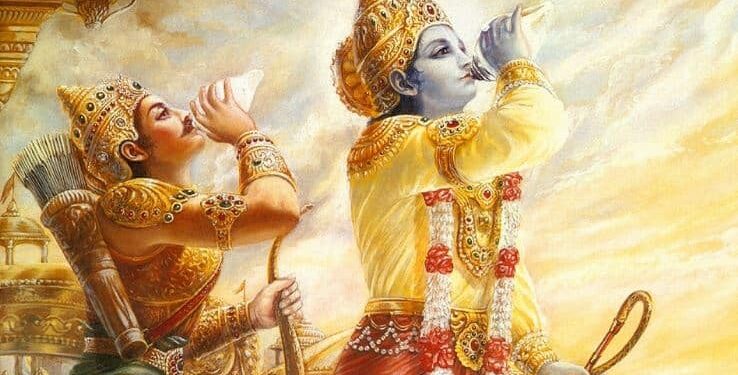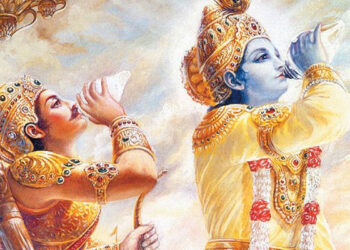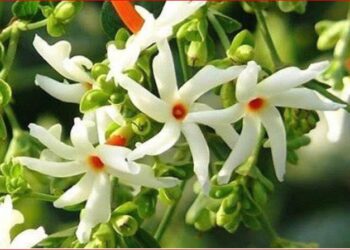TEXT 43
utsanna-kula-dharmāṇāṁ
manuṣyāṇāṁ janārdana
narake niyataṁ vāso
bhavatīty anuśuśruma
SYNONYMS
utsanna—spoiled; kula—dharmāṇām—of those who have the family traditions; manuṣyāṇām—of such men; janārdana—O Kṛṣṇa; narake—in hell; niyatam—always; vāsaḥ—residence; bhavati—it so becomes; iti—thus; anuśuśruma—I have heard by disciplic succession.
TRANSLATION
O Kṛṣṇa, maintainer of the people, I have heard by disciplic succession that those whose family traditions are destroyed dwell always in hell.
PURPORT
Arjuna bases his argument not on his own personal experience, but on what he has heard from the authorities. That is the way of receiving real knowledge. One cannot reach the real point of factual knowledge without being helped by the right person who is already established in that knowledge. There is a system in the varṇāśrama institution by which before death one has to undergo the process of atonement for his sinful activities. One who is always engaged in sinful activities must utilize the process of atonement called the prāyaścitta. Without doing so, one surely will be transferred to hellish planets to undergo miserable lives as the result of sinful activities.
TEXT 44
aho bata mahat pāpaṁ
kartuṁ vyavasitā vayam
yad rājya-sukha-lobhena
hantuṁ sva-janam udyatāḥ
SYNONYMS
aho—alas; bata—how strange it is; mahat—great; pāpam—sins; kartum—to perform; vyavasitāḥ—have decided; vayam—we; yat—because; rājya-sukha-lobhena—driven by greed for royal happiness; hantum—to kill; sva-janam—kinsmen; udyatāḥ—trying.
TRANSLATION
Alas, how strange it is that we are preparing to commit greatly sinful acts. Driven by the desire to enjoy royal happiness, we are intent on killing our own kinsmen.
PURPORT
Driven by selfish motives, one may be inclined to such sinful acts as the killing of one’s own brother, father or mother. There are many such instances in the history of the world. But Arjuna, being a saintly devotee of the Lord, is always conscious of moral principles and therefore takes care to avoid such activities.
TEXT 45
yadi mām apratīkāram
aśastraṁ śastra-pāṇayaḥ
dhārtarāṣṭrā raṇe hanyus
tan me kṣemataraṁ bhavet
SYNONYMS
yadi—even if; mām—me; apratīkāram—without being resistant; aśastram—without being fully equipped; śastra-pāṇayaḥ—those with weapons in hand; dhārtarāṣṭrāḥ—the sons of Dhṛtarāṣṭra; raṇe—on the battlefield; hanyuḥ—may kill; tat—that; me—for me; kṣema-taram—better; bhavet—would be.
TRANSLATION
Better for me if the sons of Dhṛtarāṣṭra, weapons in hand, were to kill me unarmed and unresisting on the battlefield.
PURPORT
It is the custom—according to kṣatriya fighting principles—that an unarmed and unwilling foe should not be attacked. Arjuna, however, decided that even if attacked by the enemy in such an awkward position, he would not fight. He did not consider how much the other party was bent upon fighting. All these symptoms are due to soft-heartedness resulting from his being a great devotee of the Lord.
TEXT 46
sañjaya uvāca
evam uktvārjunaḥ saṅkhye
rathopastha upāviśat
visṛjya sa-śaraṁ cāpaṁ
śoka-saṁvigna-mānasaḥ
SYNONYMS
sañjayaḥ uvāca—Sañjaya said; evam—thus; uktvā—saying; arjunaḥ—Arjuna; saṅkhye—in the battlefield; ratha—of the chariot; upasthe—on the seat; upāviśat—sat down again; visṛjya—putting aside; sa-śaram—along with arrows; cāpam—the bow; śoka—by lamentation; saṁvigna—distressed; mānasaḥ—within the mind.
TRANSLATION
Sañjaya said: Arjuna, having thus spoken on the battlefield, cast aside his bow and arrows and sat down on the chariot, his mind overwhelmed with grief.
PURPORT
While observing the situation of his enemy, Arjuna stood up on the chariot, but he was so afflicted with lamentation that he sat down again, setting aside his bow and arrows. Such a kind and soft-hearted person, in the devotional service of the Lord, is fit to receive self-knowledge.
Thus end the Bhaktivedanta Purports to the First Chapter of the Śrīmad Bhagavad-gītā in the matter of Observing the Armies on the Battlefield of Kurukṣetra.


















